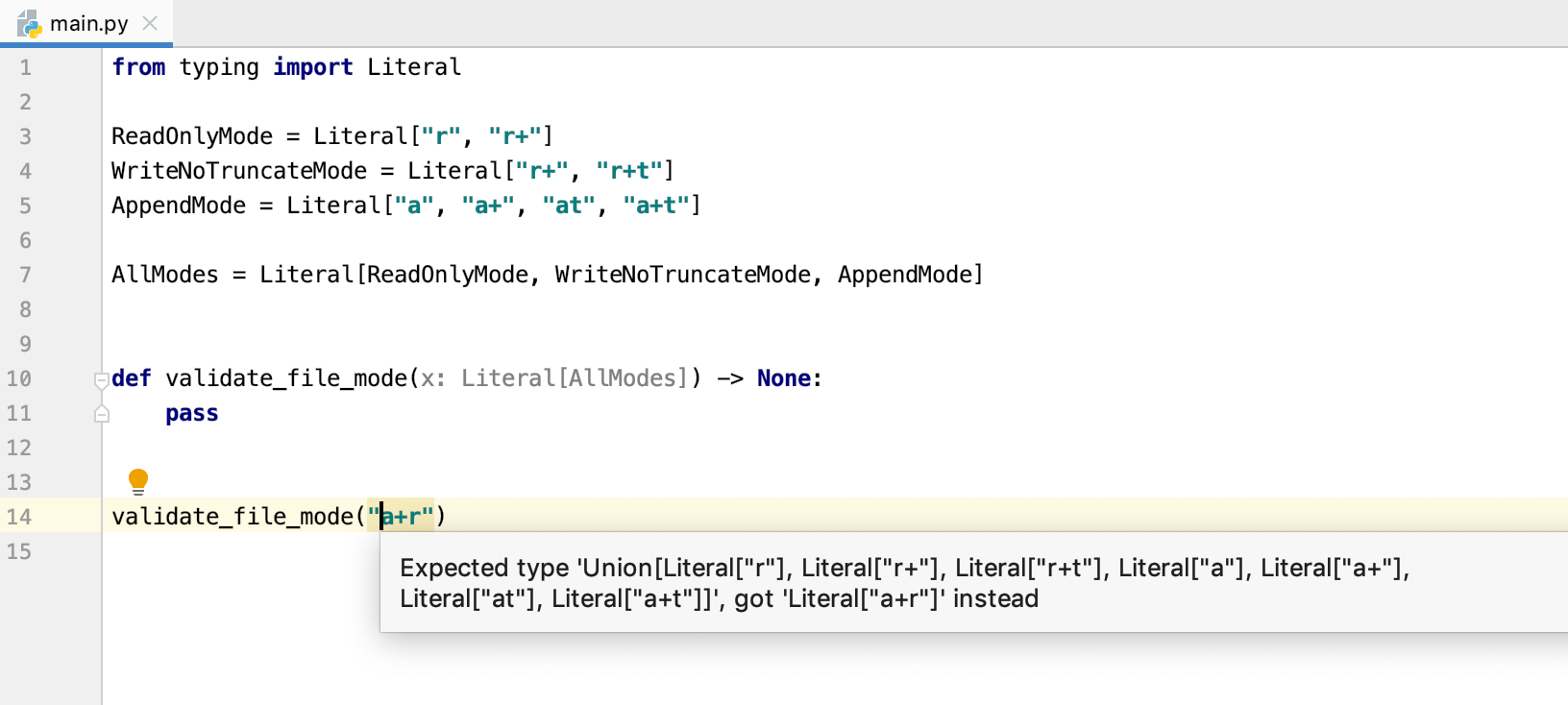2019.3 EAP 3
A new version of the Early Access Program (EAP) for PyCharm 2019.3 is available now! Download it from our website.
New for this version
Literal types support
Python 3.8 release is right around the corner and we are working on supporting its latest features. PyCharm 2019.3 EAP 3 introduces the support for Literal types. Literal types is Python 3.8’s new alternative to define type signatures for functions (PEP-0586). With this now you have the ability to indicate that some expression expects a specific and concrete value.
Further improvements
- Our stub support was extended to support proper code autocompletion for modules like ‘sys’, ‘logging’, ‘concurrent’ and ’email’.
- An issue causing the output of a Jupyter notebook not to render properly was fixed.
- We renamed the tabs for the Jupyter toolwindow to avoid confusions. Now it will more obvious that the outer one refers to the process and the inner one to its output.
- For more details on what’s new in this version, see the release notes
Interested?
Download this EAP from our website. Alternatively, you can use the JetBrains Toolbox App to stay up to date throughout the entire EAP.
If you’re on Ubuntu 16.04 or later, you can use snap to get PyCharm EAP, and stay up to date. You can find the installation instructions on our website.
Subscribe to PyCharm Blog updates










